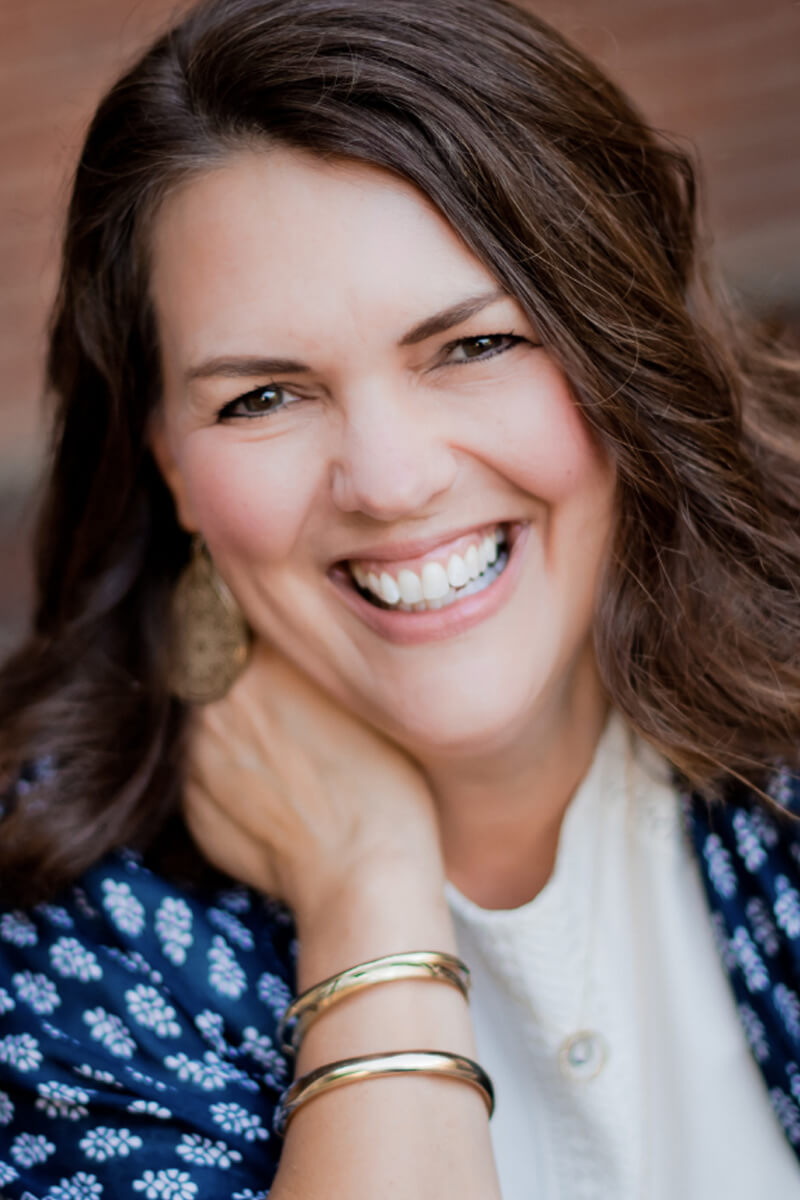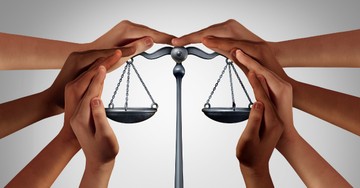
Currently, we are engaged in critical and difficult conversations in our country and our churches over racially-charged inequity, inequality, and violence. This season reveals how far we actually haven’t come in navigating the waters of racial reconciliation.
Christians trumpet the labels of “liberal” and "conservative” louder than anyone I know, as if matters of police brutality, violent demonstrations, and 400 years of racial dominance are political rather than ethical issues. Even godless commentators and celebrities recognize that issues of racial prejudice are moral issues.
How can racial tension change? We Christians must own the systemic race problem in every aspect of our culture. By not professing and modeling God’s transformative love, we have facilitated--not eliminated--racism.
It’s petty and dismissive when we minimize the trauma of discrimination or respond by accusing people or casting blame. Nothing in the Bible supports accusations or blame-shifting. It has old fashioned terms for this--confession and repentance. We must take ownership of our mess and change it (Ephesians 4:20-32).
As members of the kingdom of God rather than the kingdoms of this world, we must respond in these following ways if we are following Jesus’ example. Because we are the sons and daughters of the King, we have the light and the power of the Holy Spirit to help us respond with compassion and brotherly love to everyone involved in racial tension.
It will take lots of prayer, Bible study, and hard conversations to get there. But as the City on the Hill, it is our duty to show the rest of the world how to reconcile racial tensions in a godly way. Let's respond in these 7 ways to get there.
We also want to offer you a FREE download of 30 Days of Prayer - Here is a 30-day anti-racism prayer challenge to help us keep our eyes on Christ and our hearts surrendered to Him as we trust Him to heal His people and transform our land.
Photo Credit: ©GettyImages/fizkes
1. Grief

1. Grief
SLIDE 1 OF 4
We must first and foremost acknowledge the collected trauma of the African-American community. We must allow the hurting to grieve and attempt to see their pain and give them space to grieve, like we should any grieving person.
Grieve with one another and for one another: for African-Americans and other people of color, for the incarcerated and their families, for the poor, and for law enforcement.
Read and listen to stories from a variety of media outlets. A narrow mindset produces a lack of empathy; a lack of empathy produces a critical and judgmental attitude. Grief is only possible when empathy is present.
“Bless those who persecute you; bless and do not curse. Rejoice with those who rejoice; mourn with those who mourn. Live in harmony with one another. Do not be proud but be willing to associate with people of low position. Do not be conceited.” Romans 12:14-16
2. Hatred for Favoritism
Jesus denounced treating people differently because of economics, race, age, gender, and culture; he even denounced treating sinners poorly because they were sinners.
Remember, Jesus came to free captives, correct injustice, and save sinners. He came to eliminate racial divide.
All of Scripture speaks against favoritism and pride. God proves spiritual equity by extending salvation (and a relationship to Him) to the whole world, regardless of identity or behavior. As a Christian, hating sin demands that we stop making excuses for ours or others’ sinful responses during this time and stop blaming people for the sins committed against them.
Sin in Scripture is not only doing something we shouldn’t do—it’s also failing to do what God has told us to do. God hates sin, but He loves the sinner; we must do the same. Recognizing the sin that pops up during racial division means acknowledging that injustice, bigotry, and hatred are sinful offenses against God.
They are not political rallying points.
“Who is wise and understanding among you? Let them show it by their good life, by deeds done in the humility that comes from wisdom. But if you harbor bitter envy and selfish ambition in your hearts, do not boast about it or deny the truth.” James 2:8-10
Photo Credit: ©Unsplash/Ahmed Hasan
3. Humility

3. Humility
SLIDE 2 OF 4
Without setting aside your perspectives and preferences, you won’t understand the complexities of the race issue. When we think we know all the answers, we can only have arguments, not conversations.
Nobody "wins" a racial war; instead of choosing or defending a position, be willing to learn how, why, and what has happened to create 400 years of racial inequality and inequity and why people are responding with profound anger and grief.
“Who is wise and understanding among you? Let them show it by their good life, by deeds done in the humility that comes from wisdom. But if you harbor bitter envy and selfish ambition in your hearts, do not boast about it or deny the truth.” James 3:12-14
4. Repentance for Racism
We all have stereotypes and assumptions about other people that can lead us to racial prejudice; we must be brave and humble enough to submit our perspectives and biases before God and let the Holy Spirit guide us and change us.
Spiritual growth is a continual process; repenting of racism is also part of growing in grace. Each of us must own the part we’ve played in facilitating or ignoring racism and ask God’s forgiveness. Without repentance, unity is impossible.
“Therefore, as God’s chosen people, holy and dearly loved, clothe yourselves with compassion, kindness, humility, gentleness and patience. Bear with each other and forgive one another if any of you has a grievance against someone. Forgive as the Lord forgave you. And over all these virtues put on love, which binds them all together in perfect unity. Let the peace of Christ rule in your hearts, since as members of one body you were called to peace.” Colossians 3:12-15
Photo Credit: ©GettyImages/kieferpix
5. Respect for Human Life

5. Respect for Human Life
SLIDE 3 OF 4
Race discrimination is another form of disrespect for human life, just like human trafficking, abortion, the foster care system, euthanasia, prisons, immigrant detention centers, Native American reservations, housing projects, elder care, and other social problems ultimately reflect a disregard for the people that God has uniquely created. If we truly believed that everyone God created were equally valuable in God’s sight, we would not debate who to care for—we would work together to figure out how to care for them and empower them in the best way possible.
"After this I looked, and there before me was a great multitude that no one could count, from every nation, tribe, people and language, standing before the throne and before the Lamb." Revelation 7:9
6. Commitment to Unity
Jesus' dying request for his followers was their complete love and unity. When he prayed in the Garden of Gethsemane, unity was what he prayed to his Father for. Paul speaks of Christian’s unity in every letter he writes.
A segregated church is not the New Testament way, nor is a segregated mentality. There is no Scriptural case for Christians distancing themselves or alienating themselves from believers or unbelievers for political or cultural reasons or even for church polity. Church separation occurred only over major doctrines that interfered with the law of grace.
Unity will take hard conversations, vulnerability, and learning from mistakes. It's not enough to just assure yourself that you're not a racist--our African American brothers and sisters need more than that.
“I pray for those who will believe in me through their message, that all of them may be one, Father, just as you are in me and I am in you….May they be brought to complete unity to let the world know that you sent me and have loved them even as you have loved me.” John 17:20-23
Photo Credit: ©GettyImages/Kardd
7. Courage to Act

7. Courage to Act
SLIDE 4 OF 4
It takes faith and determination to consider a long-standing position and change it. Whether Black or white, each of us can grow in awareness and advocacy for justice. Respond to the prompting of the Holy Spirit to guide you, rather than your anger or the momentum of a cultural movement.
Anger is a wake-up call to action, not a solution; we must move forward in courage and love, or else our actions will become hostile and disrespectful on our journey toward doing good. Jesus never did harm in an attempt to do good.
“Therefore each of you must put off falsehood and speak truthfully to your neighbor, for we are all members of one body. ‘In your anger do not sin’: Do not let the sun go down while you are still angry, and do not give the devil a foothold.” Ephesians 4:25-27
Once we humble ourselves to learn, repent, and forgive one another, we will have the unity to move forward as one body and dispel the racial tension in our churches and our communities. We are the hope of glory (Colossians 1:27).
Let’s shine!
Sue Schlesman is a Christian author, English teacher, pastor’s wife, and Christian speaker. She has a BA in Creative Writing and a Master’s in Theology & Culture. Her book Soulspeak: Praying Change into Unexpected Places is a Selah Award finalist. Sue has a passion for her family, missions, social justice, traveling, reading, and the local church. She’s been married for 30 years and has 3 adult sons. When she’s not baking cookies, you can find her writing about life, education, family, and Jesus on various media sites and at sueschlesman.com.
Photo Credit: ©GettyImages/coffeekai

Originally published June 15, 2020.







